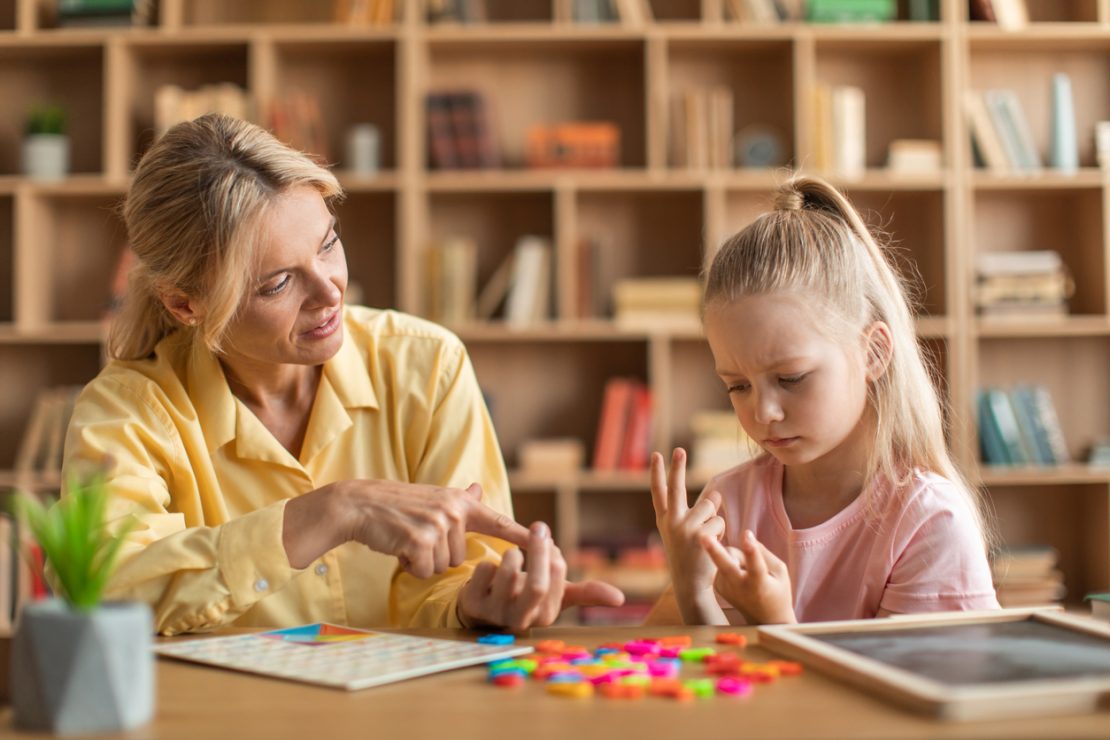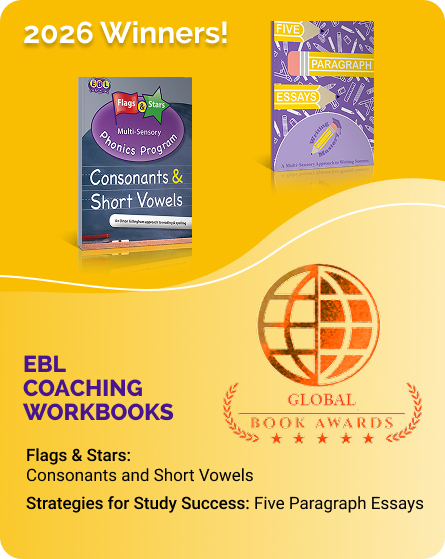
What is Orton Gillingham tutoring?
The Orton Gillingham approach is a structured, research-based, multi-sensory teaching method for helping students develop their reading and spelling skills. While it is particularly helpful for students with dyslexia, all students, especially those with language-based learning disabilities, can benefit from Orton Gillingham tutoring. What exactly is Orton Gillingham tutoring?
Multi-sensory approach
Orton Gillingham tutoring integrates a multi-sensory approach to teaching. This includes using tools such as colored sand, shaving cream, magnetic tiles, and white boards, among other related tools, as part of a structured instructional plan. For example, an Orton Gilliam tutor working on consonants and short vowel sounds with a student might start with one letter at a time and use the following multi-sensory approach: they might begin by showing the student a flash card with the letter on the front of the card (like f) and a key picture on the back (like fish). The Orton Gillingham tutor might say to the student, “This is the letter f (shows them the front of the card), like fish (turns the card around to show them the picture of the fish), it makes the sound /f/ (turns the card back to the front).” The student would repeat that sequence with the Orton Gillingham tutor and then try it on their own. Next, the Orton Gillingham tutor might move onto sky writing and model tracing the letter in the sky, saying the letter formation aloud as they trace it, like, “When we write the letter f, we move around, down, and across.” The student would perform that sky writing motion with the Orton Gillingham tutor, then independently, and then the tutor would move onto tracing the letter in colored sand or shaving cream.
The Orton Gillingham tutor would follow that same process for four consonants and one short vowel sound (card exercise, sky writing, sand or shaving cream writing), then practice blending those sounds together to form words using multi-sensory tools such as magnetic tiles and mini white boards. When the student is ready, the Orton Gillingham tutor can also have the student read word lists, sentences, and stories integrating the sounds taught.
Structured method
Orton Gillingham tutoring lessons should also be very structured. They should begin at the student’s current functioning level and then progress upwards from there in a systematic format. For example, if the student is struggling with individual letters and their corresponding sounds, the Orton Gillingham tutor should start by teaching letters and sounds, along with how to blend those sounds together to form words, as detailed above. Next, the Orton Gillingham tutor should move onto words containing blends, consonant digraphs, vowel digraphs, silent e patterns, r-controlled patterns, multi-syllabic word patterns, and so on, all following a structured, multi-sensory approach. Before a new lesson is introduced in an Orton Gillingham tutoring lesson, previously taught letters, sounds, and rules should be reviewed.
Individualized instruction
Orton Gillingham tutoring lessons should be individualized to the unique needs of each student. Some students are able to move quickly through new lessons, while others need more time to absorb and practice the new concepts taught. Some students can move quickly through certain concepts but need more time grasping other concepts. The Orton Gillingham tutor should move as quickly as they can but as slowly as they need to, individualizing the instruction and providing diagnostic and prescriptive Orton Gillingham tutoring to each student.
Research-based
Research indicates that using a direct, systematic, multi-sensory approach to teaching is imperative for students who struggle with reading, including those who have a reading disability like dyslexia. Orton Gillingham tutoring provides this type of instruction to students, helping them to immensely improve their reading and spelling skills.
Orton Gillingham tutoring can truly be life-changing for students who struggle with reading and writing. It can help them develop much stronger academic skills, self-esteem, motivation, and overall success in school.

